Abstract
The patterns, management and outcome of non-fatal orthopaedic injury in childhood was audited over a 1 year period in Southampton. A computer-based audit (1 September 1993 to 31 August 1994) was conducted of all children aged under 15 years who were admitted to the orthopaedic unit after accidental injury. Management was audited by studying the primary conservative and operative treatment methods employed. Treatment outcome was evaluated in terms of need for secondary operative treatment, salvage internal fixation, length of hospital stay and unplanned readmission. In all, 398 children, representing 50/10,000 of the local paediatric population, were admitted with a traumatic injury. There was a significant (P < 0.001, Kolmogorov-Smirnov) seasonal variation in admission rate. There were 87.3% admissions required for fractures, 8.5% after soft tissue injury and 2.2% after joint injury. The following areas were identified where management and outcome could be improved: 1 A 12.1% readmission rate (47/346) in children with fractures owing to a 16% incidence of loss of position after closed reduction of distal radial, forearm shaft and distal humeral fractures. 2 In all, 24% of internal fixation procedures were performed as 'salvage' after failure of conservative treatment, entailing either reoperation during the initial admission or a further unplanned readmission. 3 A prolonged inpatient stay for patients with femoral fractures owing to a wide variation in treatment method. The outcome of non-fatal orthopaedic injury can be improved through the selective use of primary internal fixation of distal radial and humeral fractures and the close adherence to a management algorithm in femoral fractures. There may be a role for more specialised supervision of primary treatment of these particular fractures.
Full text
PDF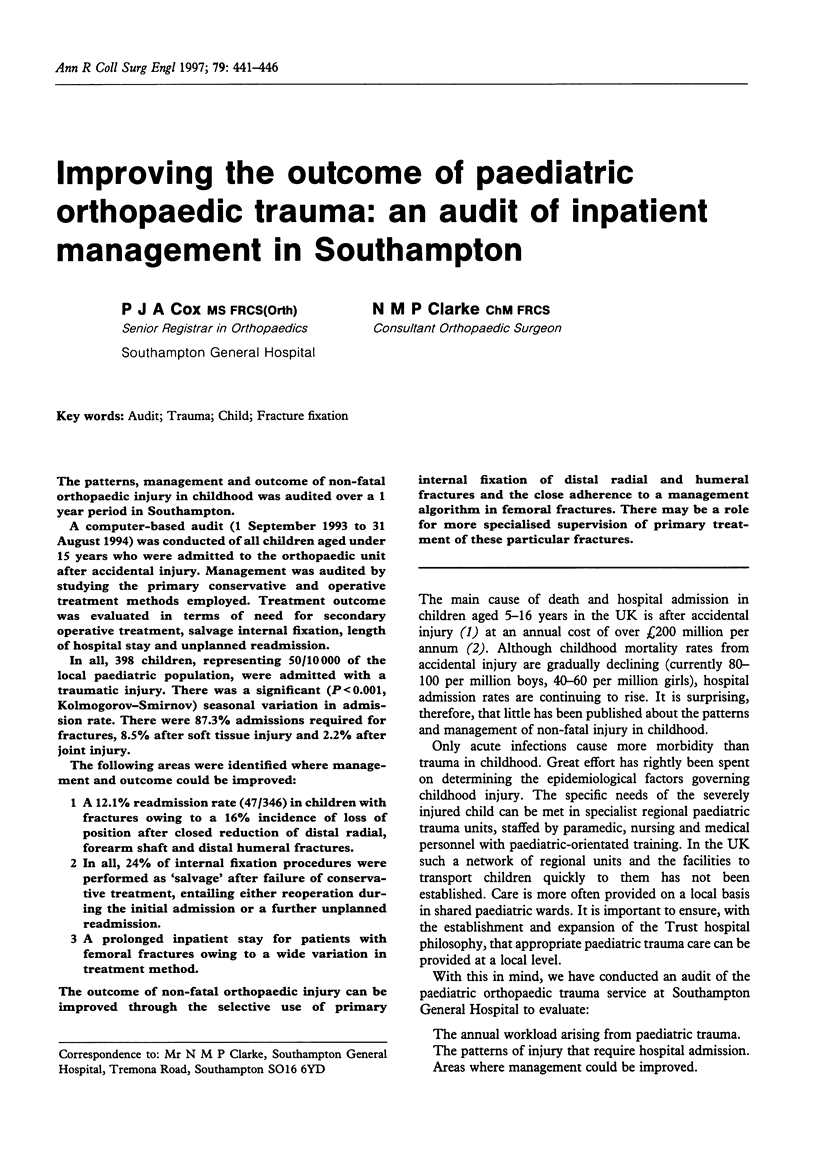
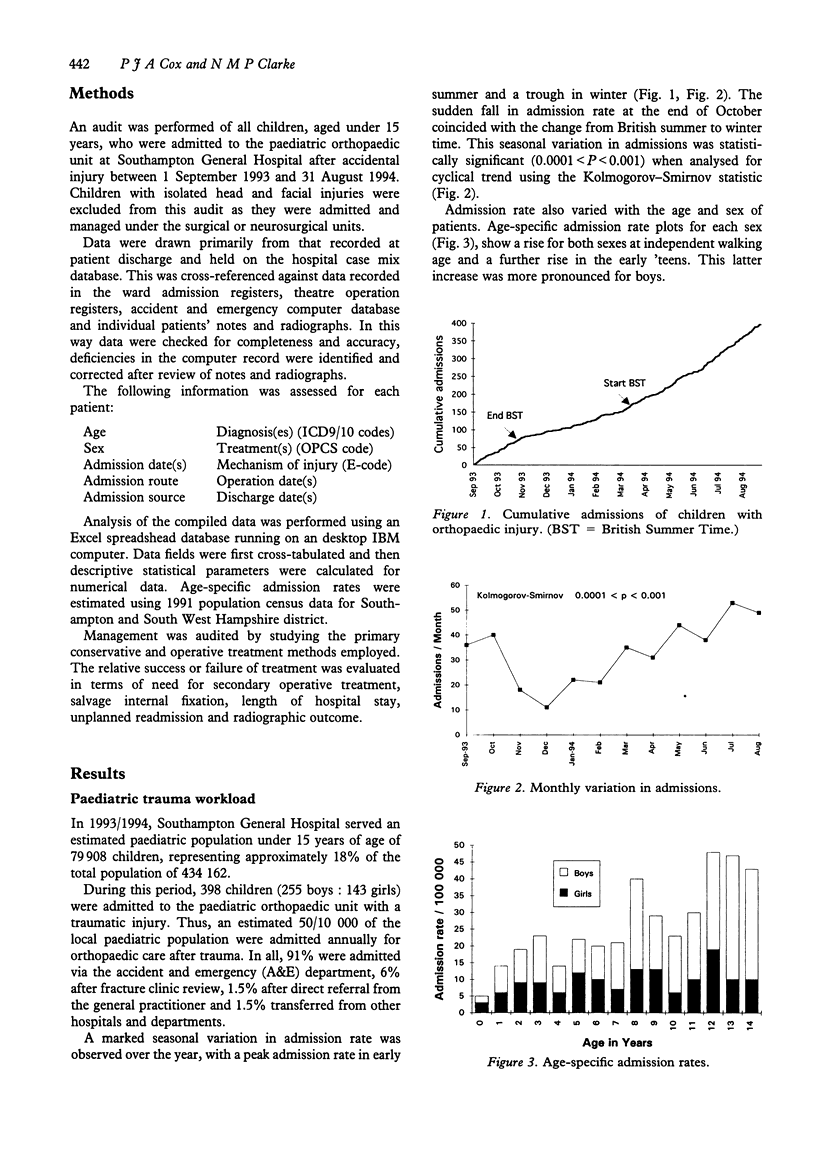
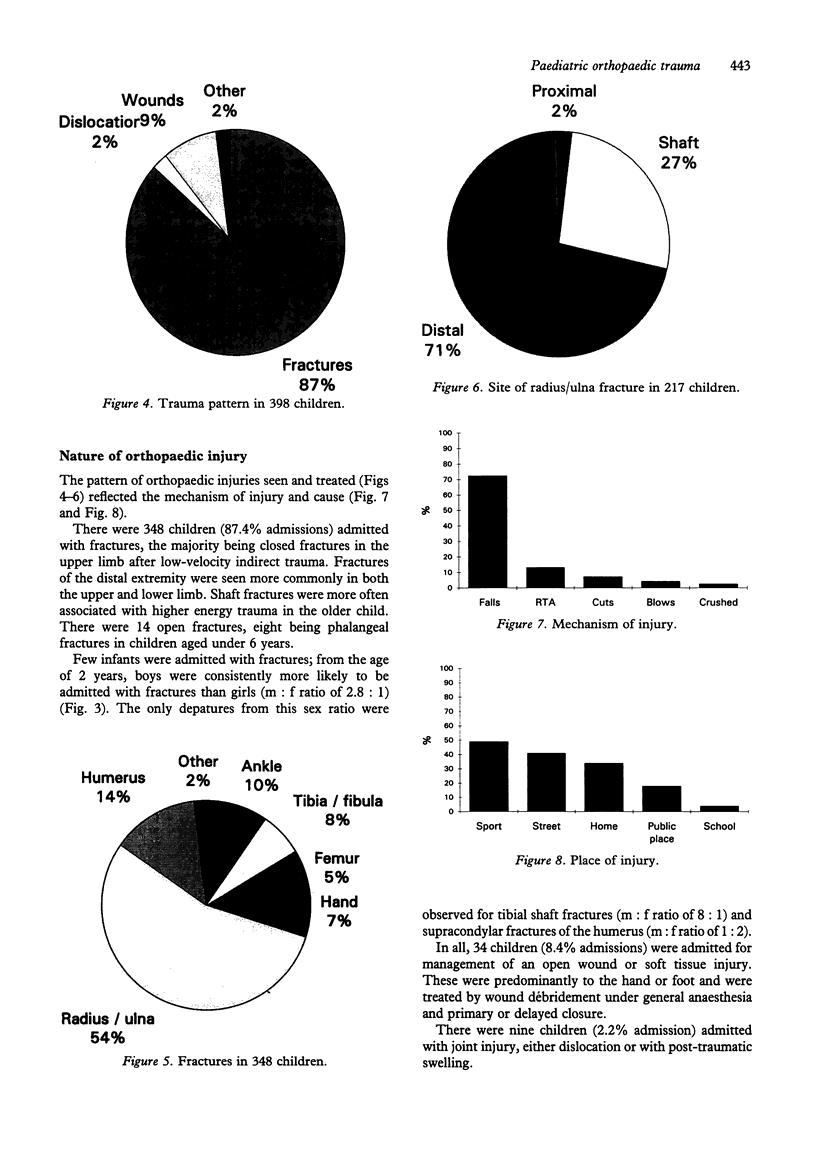
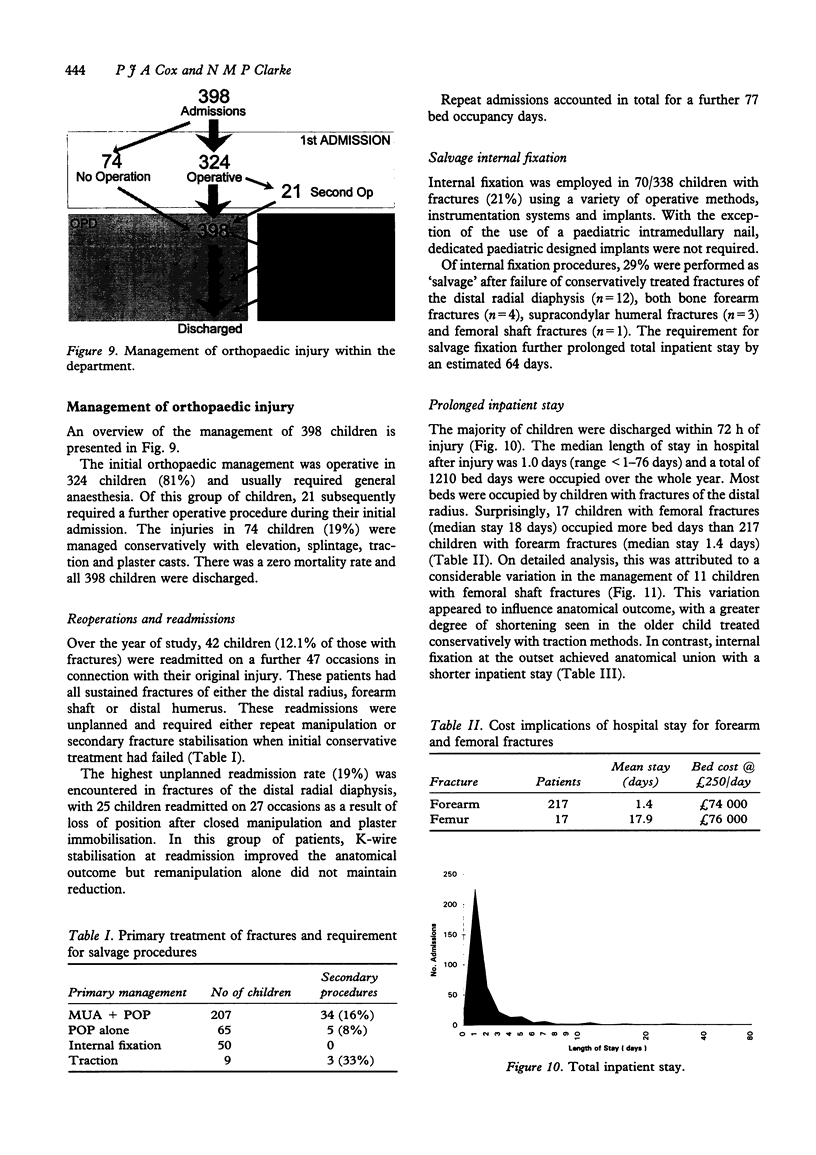
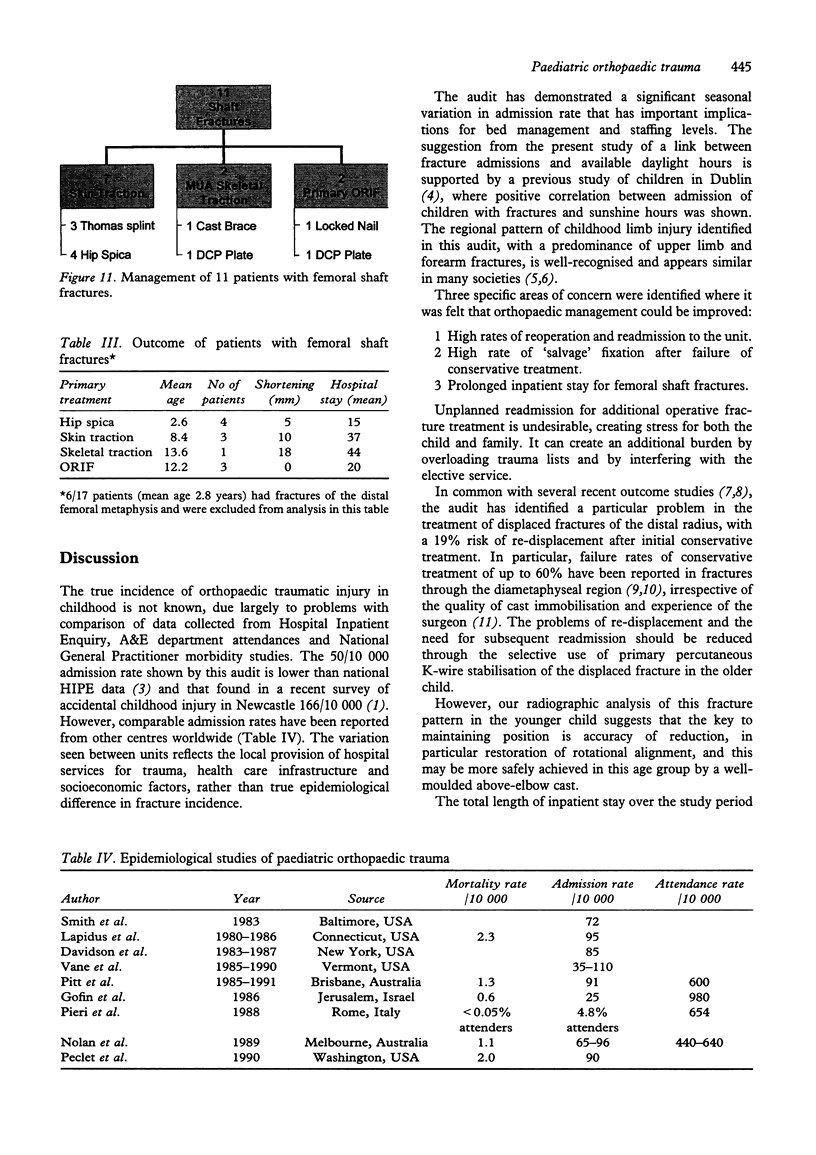
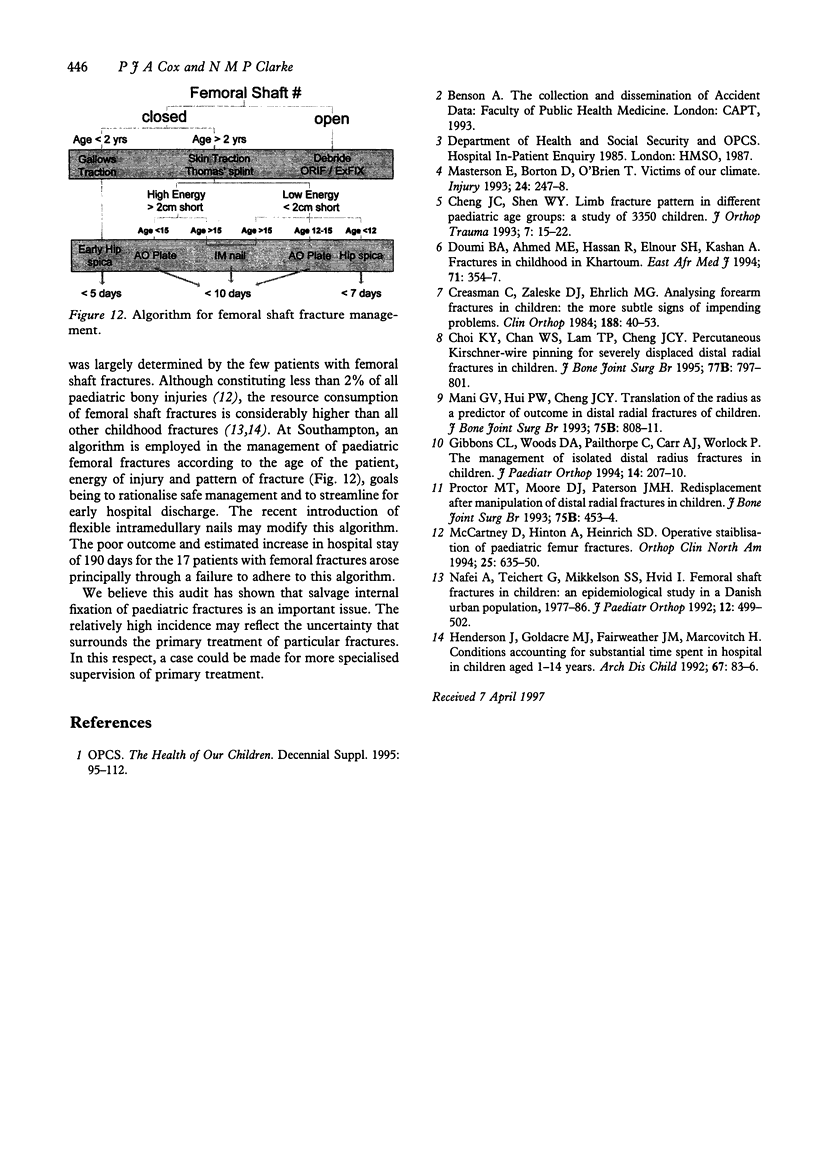
Selected References
These references are in PubMed. This may not be the complete list of references from this article.
- Cheng J. C., Shen W. Y. Limb fracture pattern in different pediatric age groups: a study of 3,350 children. J Orthop Trauma. 1993;7(1):15–22. doi: 10.1097/00005131-199302000-00004. [DOI] [PubMed] [Google Scholar]
- Choi K. Y., Chan W. S., Lam T. P., Cheng J. C. Percutaneous Kirschner-wire pinning for severely displaced distal radial fractures in children. A report of 157 cases. J Bone Joint Surg Br. 1995 Sep;77(5):797–801. [PubMed] [Google Scholar]
- Creasman C., Zaleske D. J., Ehrlich M. G. Analyzing forearm fractures in children. The more subtle signs of impending problems. Clin Orthop Relat Res. 1984 Sep;(188):40–53. [PubMed] [Google Scholar]
- Doumi B. A., Ahmed M. E., Hassan R., Elnour S. H., Kashan A. Fractures in childhood in Khartoum. East Afr Med J. 1994 Jun;71(6):354–357. [PubMed] [Google Scholar]
- Gibbons C. L., Woods D. A., Pailthorpe C., Carr A. J., Worlock P. The management of isolated distal radius fractures in children. J Pediatr Orthop. 1994 Mar-Apr;14(2):207–210. doi: 10.1097/01241398-199403000-00014. [DOI] [PubMed] [Google Scholar]
- Henderson J., Goldacre M. J., Fairweather J. M., Marcovitch H. Conditions accounting for substantial time spent in hospital in children aged 1-14 years. Arch Dis Child. 1992 Jan;67(1):83–86. doi: 10.1136/adc.67.1.83. [DOI] [PMC free article] [PubMed] [Google Scholar]
- Mani G. V., Hui P. W., Cheng J. C. Translation of the radius as a predictor of outcome in distal radial fractures of children. J Bone Joint Surg Br. 1993 Sep;75(5):808–811. doi: 10.1302/0301-620X.75B5.8376446. [DOI] [PubMed] [Google Scholar]
- Masterson E., Borton D., O'Brien T. Victims of our climate. Injury. 1993 Apr;24(4):247–248. doi: 10.1016/0020-1383(93)90179-a. [DOI] [PubMed] [Google Scholar]
- McCartney D., Hinton A., Heinrich S. D. Operative stabilization of pediatric femur fractures. Orthop Clin North Am. 1994 Oct;25(4):635–650. [PubMed] [Google Scholar]
- Nafei A., Teichert G., Mikkelsen S. S., Hvid I. Femoral shaft fractures in children: an epidemiological study in a Danish urban population, 1977-86. J Pediatr Orthop. 1992 Jul-Aug;12(4):499–502. [PubMed] [Google Scholar]
- Proctor M. T., Moore D. J., Paterson J. M. Redisplacement after manipulation of distal radial fractures in children. J Bone Joint Surg Br. 1993 May;75(3):453–454. doi: 10.1302/0301-620X.75B3.8496221. [DOI] [PubMed] [Google Scholar]


